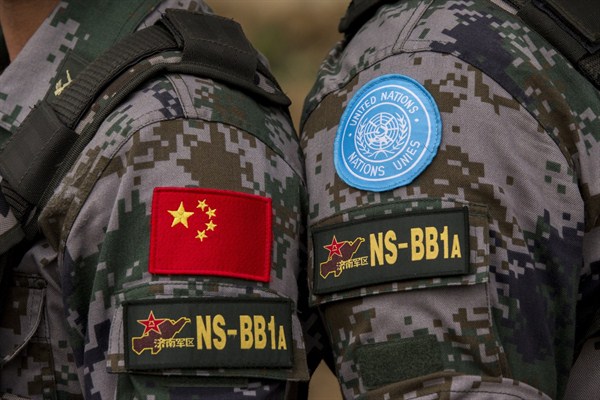Can anyone save South Sudan? The country, which collapsed into civil war in 2013, is stumbling into a new cycle of violence. Clashes in the capital, Juba, have claimed hundreds of lives in recent days. The United Nations Security Council has called for calm, and the U.S., which played a leading role in ushering in South Sudan’s independence five years ago, has condemned the violence. Yet the outbreak of fighting poses an especially serious dilemma for another power with significant economic and political interests at stake: China.
Beijing is playing an increasing military and diplomatic role across Africa, as I noted last month. But its influence in South Sudan is particularly pronounced. It is a major consumer of the country’s oil and has invested heavily in efforts to restore order since 2013. Breaking with its cautious approach to international stabilization missions, China deployed a combat battalion to Juba under U.N. command last year. Behind the scenes, Chinese diplomats have put huge pressure on local officials not only to step back from violence but also to cut back on corruption.
Beijing has already paid a human cost for its engagement as the violence surged: Two of its peacekeepers were killed after a shell hit their vehicle in Juba on Sunday.

